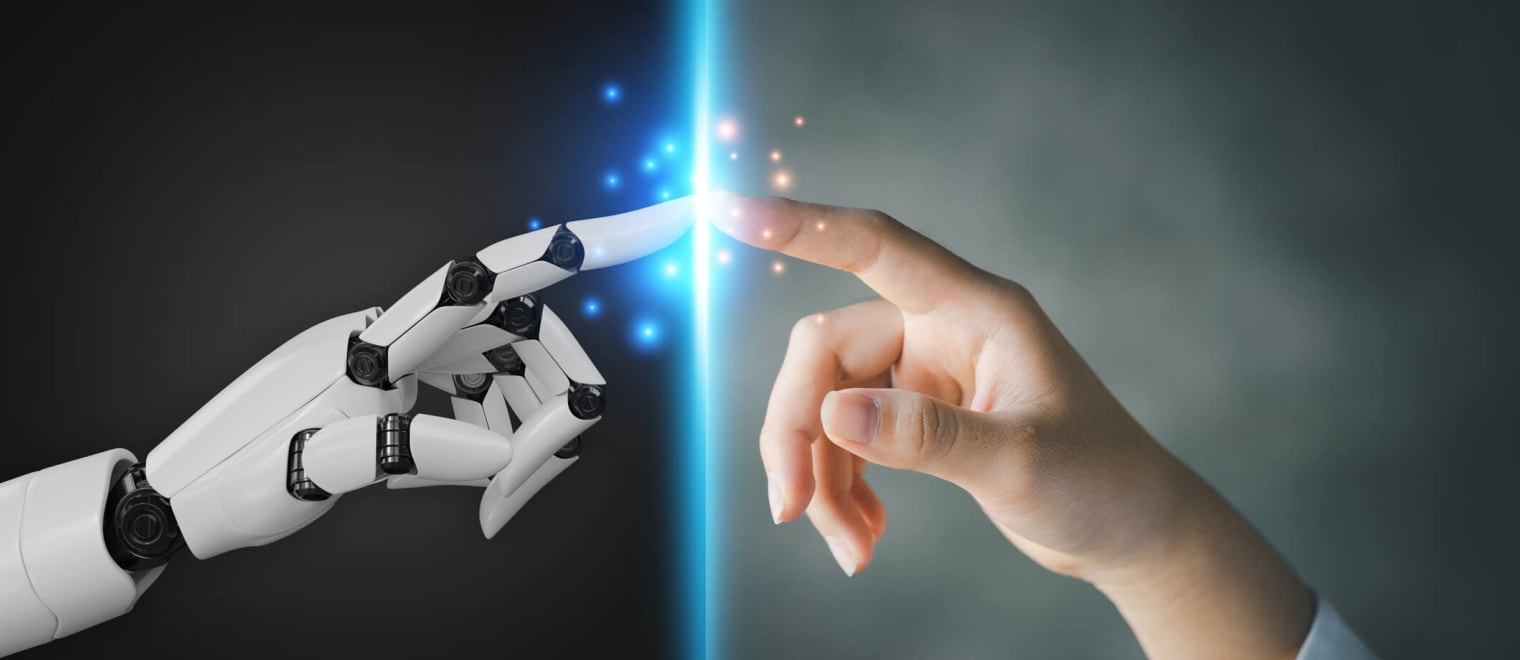This informal CPD article, ‘The future of Human Skills in an AI world’, was provided by LEVRA, who coach Human Skills in the workplace using innovative technologies including virtual reality (VR). Their mission is to equip young professionals with the interpersonal communication skills essential for individuals to succeed and businesses to thrive.
AI has the potential to revolutionise every industry and redefine job roles. Companies are now looking not just for AI solutions but also for people who can work effectively with those solutions. So, what does this mean for employees? Will AI render human abilities obsolete, or will it create new opportunities for human potential to flourish? The reality likely lies somewhere in between, with AI augmenting human capabilities and shifting the focus towards uniquely Human Skills that machines cannot easily replicate.
In this rapidly evolving landscape, Human Skills are poised to become increasingly valuable. emotional intelligence, critical thinking, and adaptability are just a few of the areas where humans still hold a significant advantage over AI. As routine and repetitive tasks become automated, the workforce of the future will need to cultivate these distinctly human attributes to remain relevant and competitive.
Emotional Intelligence in the Age of AI
Emotional intelligence (EQ) includes the ability to recognise, understand, and manage our own emotions and others'. While AI has taken small steps in recognising human emotions, the nuanced understanding and application of emotional intelligence remain uniquely human domains. In an AI-driven world, the ability to empathise, communicate effectively, and navigate complex social situations will become even more crucial.
Leaders with high EQ will be invaluable in managing human-AI collaborations, ensuring smooth transitions during technological implementations, and maintaining a positive workplace culture. As AI handles more data-driven decisions, human managers will need to focus on the interpersonal aspects of leadership, fostering team cohesion and motivation.
Creativity: The Human Edge
Despite advances in generative AI, human creativity continues to be a distinguishing factor. While AI can produce content based on existing patterns and data, true innovation often requires the kind of lateral thinking and intuitive leaps that humans excel at. The ability to connect disparate ideas, think outside established paradigms, and envision entirely new possibilities will be highly prized in an AI-augmented world.
Industries from design and advertising to scientific research and product development will value highly individuals who can bring fresh perspectives and original ideas to the table. The fusion of human creativity with AI's analytical capabilities has the potential to unlock unprecedented levels of innovation.
Critical Thinking and Complex Problem-Solving
As AI takes over routine analytical tasks, human critical thinking skills will become more important than ever. The ability to evaluate information from multiple sources, recognise biases, and make judgments in ambiguous situations are areas where humans still outperform machines. In a world awash with AI-generated content and data, discerning truth from misinformation and making ethically sound decisions will be crucial skills.
Complex problem-solving, especially in novel situations in professional services like accounting, law, insurance etc., will remain a human forte. While AI can process vast amounts of data and identify patterns, humans excel at integrating diverse knowledge domains, considering broader contexts, and devising innovative solutions to multifaceted challenges.
Adaptability and Lifelong Learning
Perhaps the most critical skill in an AI-driven future will be adaptability. As technology evolves at an unprecedented pace, the ability to quickly learn new skills, embrace change, and pivot career directions will be essential. The concept of a single, lifelong career may become obsolete, replaced by a model of continuous learning and skill development.
Successful individuals in this new paradigm will be those who can rapidly acquire new knowledge, transfer skills across different domains, and remain flexible in the face of technological disruption. Cultivating a growth mindset and a passion for lifelong learning will be key to thriving in an ever-changing job market.
The Human-AI Collaboration
Rather than a future where AI replaces humans, we are more likely to see a world of human-AI collaboration. This symbiosis will require new skills in effectively working alongside AI systems, understanding their capabilities and limitations, and leveraging them to enhance human productivity and creativity.
Summary
The future of Human Skills in an AI world is not about competition with machines, but about honing the qualities that make us uniquely human. By focusing on emotional intelligence, creativity, critical thinking, adaptability, and the ability to work effectively with AI systems, we can create a future where human potential is amplified rather than replaced by artificial intelligence.
As we navigate this transition, educational systems and professional development programmes will need to evolve, placing greater emphasis on these essential Human Skills. Organisations that invest in developing their workforce's distinctly human capabilities will be best positioned to thrive in the AI-augmented landscape of tomorrow. In this future, the most valuable skill may well be the ability to remain quintessentially human in a world increasingly shaped by artificial intelligence.
We hope this article was helpful. For more information from LEVRA, please visit their CPD Member Directory page. Alternatively, you can go to the CPD Industry Hubs for more articles, courses and events relevant to your Continuing Professional Development requirements.













